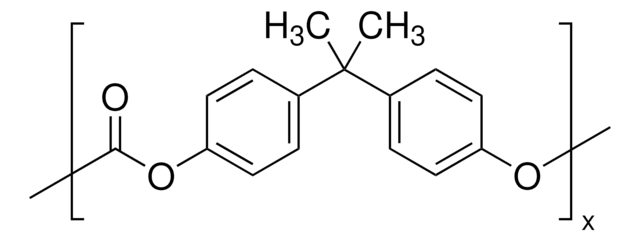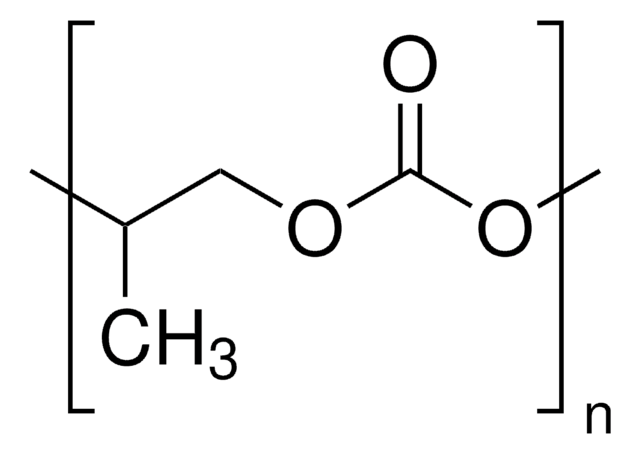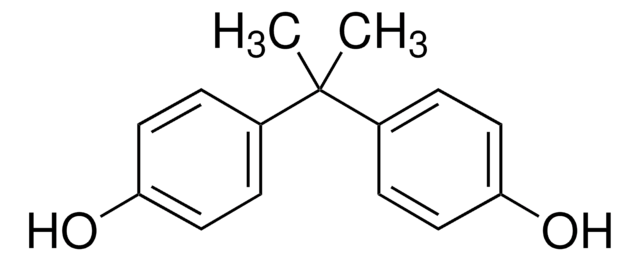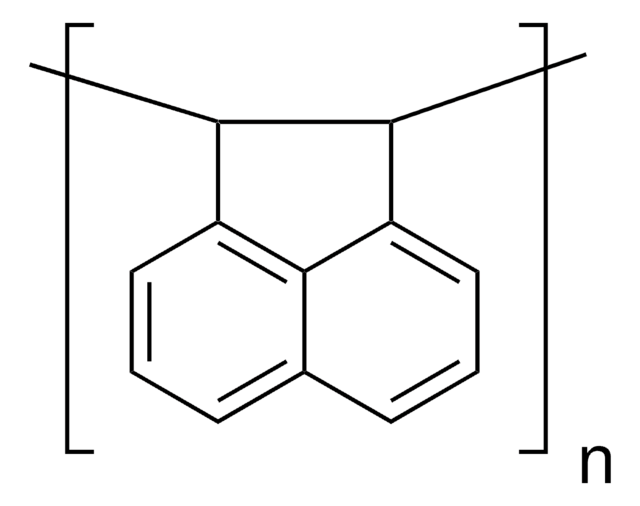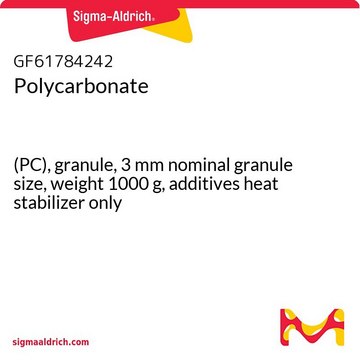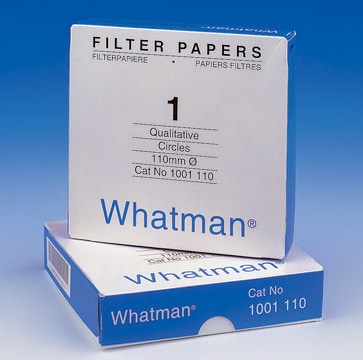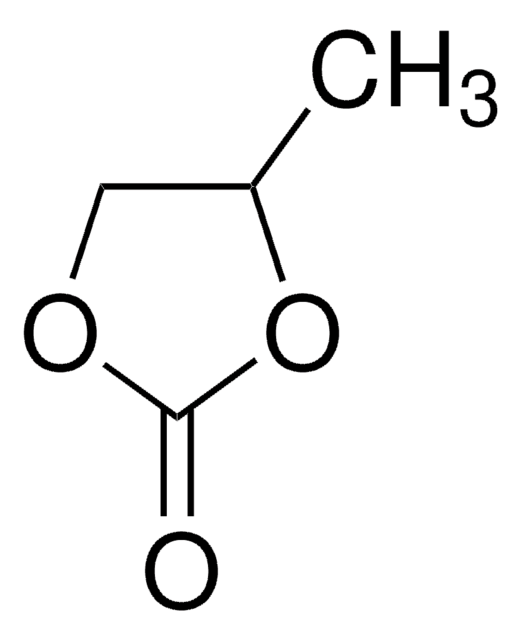181676
Poly(Bisphenol A carbonate)
analytical standard, molecular weight series
About This Item
Recommended Products
grade
analytical standard, molecular weight series
Quality Level
mol wt
average Mn 12,000-23,000 (typical)
average Mw 22,000-40,000 (typical)
technique(s)
gel permeation chromatography (GPC): suitable
density
1.2 g/mL at 25 °C (lit.)
format
neat
SMILES string
CC(C)(c1ccc(O)cc1)c2ccc(O)cc2
InChI
1S/C15H16O2.CH2O3/c1-15(2,11-3-7-13(16)8-4-11)12-5-9-14(17)10-6-12;2-1(3)4/h3-10,16-17H,1-2H3;(H2,2,3,4)
InChI key
XSXWYGABGYBZRM-UHFFFAOYSA-N
Gene Information
mouse ... Esr1(13982)
rat ... Ar(24208)
Looking for similar products? Visit Product Comparison Guide
General description
Application
Analysis Note
Kit Components Only
- average Mw 23,000; average Mn 13,000 25 g
- average Mw 40,000; average Mn 21,000 25 g
- average Mw 31,000; average Mn 18,000 25 g
Storage Class Code
11 - Combustible Solids
WGK
WGK 3
Flash Point(F)
Not applicable
Flash Point(C)
Not applicable
Personal Protective Equipment
Choose from one of the most recent versions:
Already Own This Product?
Find documentation for the products that you have recently purchased in the Document Library.
Customers Also Viewed
Our team of scientists has experience in all areas of research including Life Science, Material Science, Chemical Synthesis, Chromatography, Analytical and many others.
Contact Technical Service